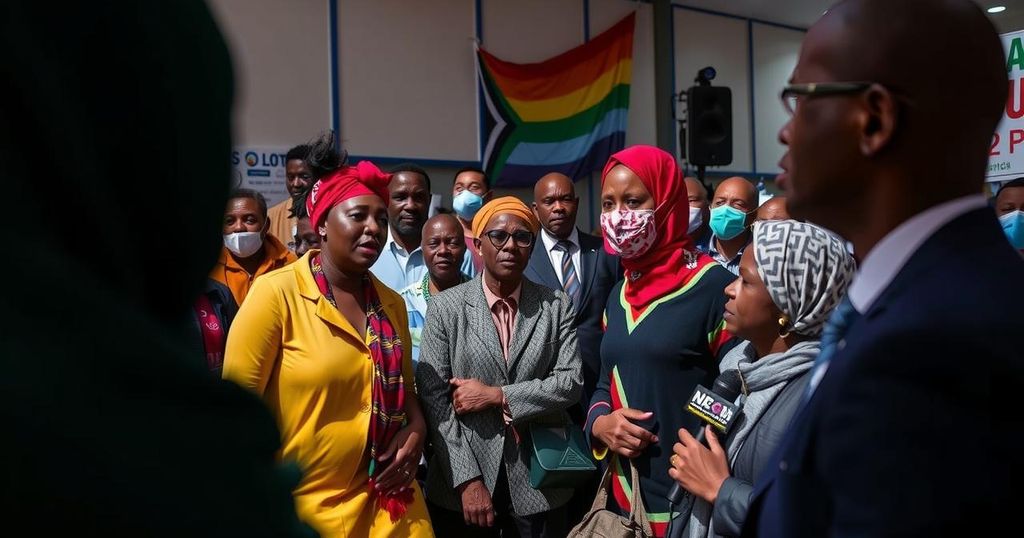Namibian Election 2024: SWAPO Confronts Challenges Amid Divided Opposition

Namibia’s SWAPO faces a tight race in the 2024 elections after a significant decline in support. The party has maintained strong northern backing but lost its majority in 2019. With key figures like Netumbo Nandi-Ndaitwah and Panduleni Itula forming the electoral landscape, the effectiveness of the opposition remains in question as the elections approach.
In the context of diminishing support for established ruling parties throughout southern Africa, Namibia’s South West Africa People’s Organisation (SWAPO) is undergoing challenges ahead of the 2024 presidential and parliamentary elections. SWAPO has maintained a stronghold in the northern regions but experienced its first decline since independence in the 2019 elections, losing its two-thirds majority. Political analysts observe that the opposition’s fragmentation could bolster SWAPO’s chances of retaining power despite recent setbacks.
Netumbo Nandi-Ndaitwah, the incumbent vice president, is vying to become the nation’s first female president and has pledged substantial investments aimed at job creation. Her main rival, Panduleni Itula of the Independent Patriots for Change, represents a noteworthy opposition challenge after gaining significant voter traction in the previous elections. The electoral landscape is characterized by a variety of parties competing for influence, which complicates the opposition’s effectiveness.
SWAPO’s success may hinge on the delicate dynamics among opposition groups, alongside controversies surrounding candidates’ backgrounds that spark historical sentiments. As the elections approach, preliminary voting indicates that SWAPO retains an advantage, yet the emergence of parties such as Itula’s IPC and Job Amupanda’s Affirmative Repositioning can potentially shift the balance of power. The culmination of these factors presents a pivotal moment for Namibia’s political future, as the nation grapples with the implications of its past and the aspirations for its future leadership.
The article discusses the political climate in Namibia as it prepares for its presidential and parliamentary elections in 2024. With SWAPO at the helm since 1990, this election marks a significant point as the party seeks to recover from a decline in popularity noted during the 2019 elections. The trends observed in neighboring countries, where established ruling parties have similarly faced challenges, provide context for understanding SWAPO’s current position and the fragmented opposition landscape that might affect the election outcomes.
In summary, Namibia’s upcoming elections represent a critical juncture for the ruling SWAPO party and the fragmented opposition. Despite past electoral setbacks, SWAPO’s historical stronghold in northern regions and the absence of a unified opposition may bolster its chances of retaining power. Meanwhile, significant figures such as Netumbo Nandi-Ndaitwah and Panduleni Itula emerge as key candidates, reflecting both continuity and change in Namibian politics. The interplay of these dynamics will be crucial in shaping the country’s governance moving forward.
Original Source: www.dw.com






